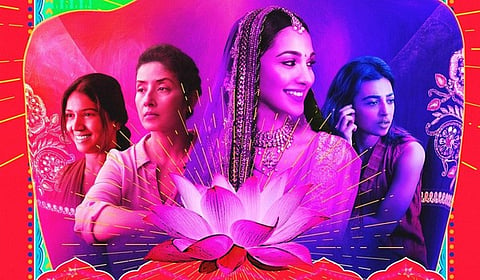Lust Stories is a recent anthology-film, released globally by Netflix India on 15 June 2018. The film has four segments, directed by Anurag Kashyap, Zoya Akhtar, Dibakar Banerjee and Karan Johar, respectively. Each of the stories purports to explore women's sexuality and desires, and the film is being upheld by various critics as 'ground-breaking', 'radical' or even a 'brave new' portrayal of women's sexuality – something that is rarely seen on screen in India. It is true that women characters hardly seem to express their desires, let alone sexual desires, in most films produced in the country's mainstream film industries. But the portrayal of love, lust and desire in the film anthology is deeply rooted in the conscious and sub-conscious misogyny prevalent in Indian society.
Last year was a momentous period in the fight for women's rights and equality. The #MeToo movement, followed by the #TimesUp campaign, helped bring into focus truths about patriarchal oppression which have become a quotidian experience in the lives of women. Thousands of women across the world sharing #MeToo on their social media pages showed the world that sexual harassment is not a minor issue and is not limited to corporate, academic or entertainment institutions. One in three women worldwide have experienced either physical and/or sexual violence from their intimate partner or non-partner in their lifetime. One would expect films on the stories of women's sexuality and desires being released in the wake of such a movement to take into account the issues of power and patriarchy. Unfortunately, this anthology manages to bypass this momentous shift in consciousness.

